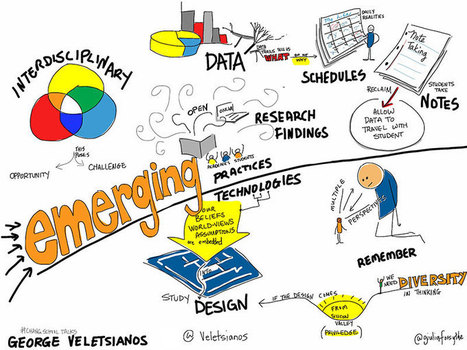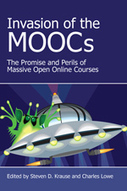Research and publish the best content.
Get Started for FREE
Sign up with Facebook Sign up with X
I don't have a Facebook or a X account
Already have an account: Login
 Your new post is loading... Your new post is loading...
 Your new post is loading... Your new post is loading...

elearning at eCampus ULg's curator insight,
February 26, 2016 4:31 AM
Nice visual and nice summarising as well

Theophilus's curator insight,
April 3, 2014 3:49 AM
Great lessons to learn for our South African Higher Education institutions who are embarking on e-learning and online-course alternatives. We do not have to commit the same mistakes. |
|
















